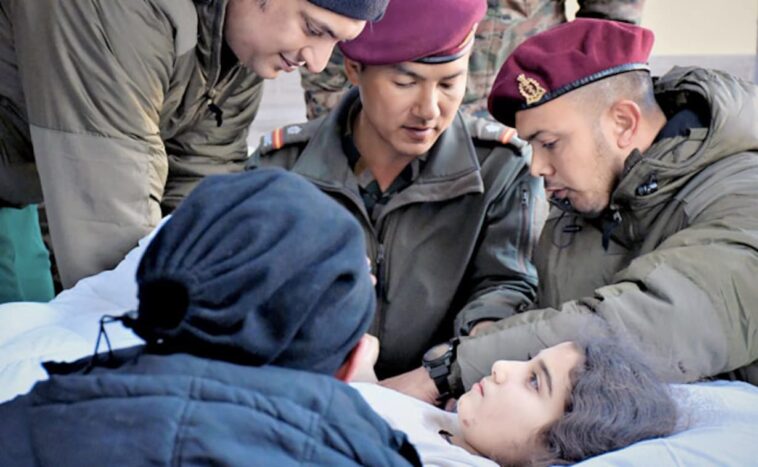Kahramanmaras, Turkey: Since their home was destroyed by the Turkish earthquake last week, Serkan Tatoglu is plagued by the question his six-year-old keeps asking.
She looks up at sights like a post-apocalyptic movie set and thinks, “Are we going to die?”
Roadside graves may be seen, and ambulance sirens blare nonstop.
Children observe as rescue personnel remove corpse bags from the foul-smelling wreckage as they stroll through the building ruins.
After the first 7.8-magnitude earthquake shook southeastern Turkey and portions of Syria early on February 6, Tatoglu assisted his four children, who ranged in age from six to fifteen, in leaving their home.
In one of the roughly 3,000 earthquakes, their building fell. In the area, more than 35,000 people have perished, and the number will probably continue to rise for many days.
Tatoglu lost approximately twelve kin.
The 41-year-old is aware that he must maintain his composure in the face of his excruciating pain.
As they wait out the aftershocks in a tent city close to the earthquake’s epicentre in southern Kahramanmaras, Tatoglu’s first priority is to protect his children from the horrors that keep flashing through their minds.
“The youngster continues asking, ‘Dad, are we going to die?’ traumatised by the earthquakes.” stated Tatoglu.
“She never stops enquiring about our kin. I don’t display their corpses to them. We give them hugs and reassure them that everything will be OK.”
‘I am powerless,’
In the wake of such a catastrophe, adults require just as much emotional care as children, according to psychologist Sueda Deveci of Doctors Worldwide Turkey.
She said that older generations internalised the enormous depth of how much their lives had altered and how much they had lost more quickly.
“One mom confided in me, saying, “Everyone encourages me to be strong, but I can’t do anything. I am unable to care for my children and cannot eat “While working in the tent city, Deveci remarked.
As the kids pass the time in the cold by drawing, Deveci is developing a deeper understanding of how the kids are experiencing.
“I don’t often discuss the earthquake with them. We’re sketching. We’ll see how much of it appears in their drawings “She said.
Their art is now mostly typical.
This is due to children’s greater capacity for environment adaptation than adults, according to child rights specialist Esin Koman.
She did, however, caution that since the earthquake destroyed their pre-existing social networks, they were now extremely vulnerable to long-term stress.
“Some children’s families have passed away. They currently have no one to turn to for mental help “said Koman.
“Where is my mother?”
A conversation a psychologist named Cihan Celik had with a paramedic participating in rescue operations was shared on Twitter.
Children who were recovered from the wreckage inquired about their missing parents very immediately, the paramedic informed Celik.
“Where are my mother and father, the injured children cry out? Are you stealing me away? “he remembered as a paramedic.
574 children taken from fallen houses were discovered without any surviving parents, according to Turkey’s vice president Fuat Oktay.
Only 76 had been given back to other relatives.
Many parents were anxiously searching for their missing children, according to a volunteer psychologist who worked at a children’s care centre in Hatay province, where the degree of damage was among the worst in Turkey.
Hatice Goz, a resident of the province of Hatay, said over the phone, “We get a bombardment of calls concerning missing children.
However, if the kid is still mute, the family is unable to locate them.
Happy feelings
Selma Karaaslan is doing all in her power to protect her two grandkids.
Since the earthquake, the 52-year-old has been living with them in a vehicle that is parked along one of Kahramanmaras’s debris-strewn roads.
Also read:- Operation Dost: “Each Tent, Blanket Or Sleeping Bag…”: Turkish Envoy Thanks India Again
In an effort to avoid the earthquake, Karaaslan attempts to communicate to them. If she floods their minds with joyful ideas, she reasoned, they are far less likely to have traumatic recollections of the accident.
But inquiries continue to be raised.
Will there be another earthquake, Grandma? At one point, the six-year-old requested.




